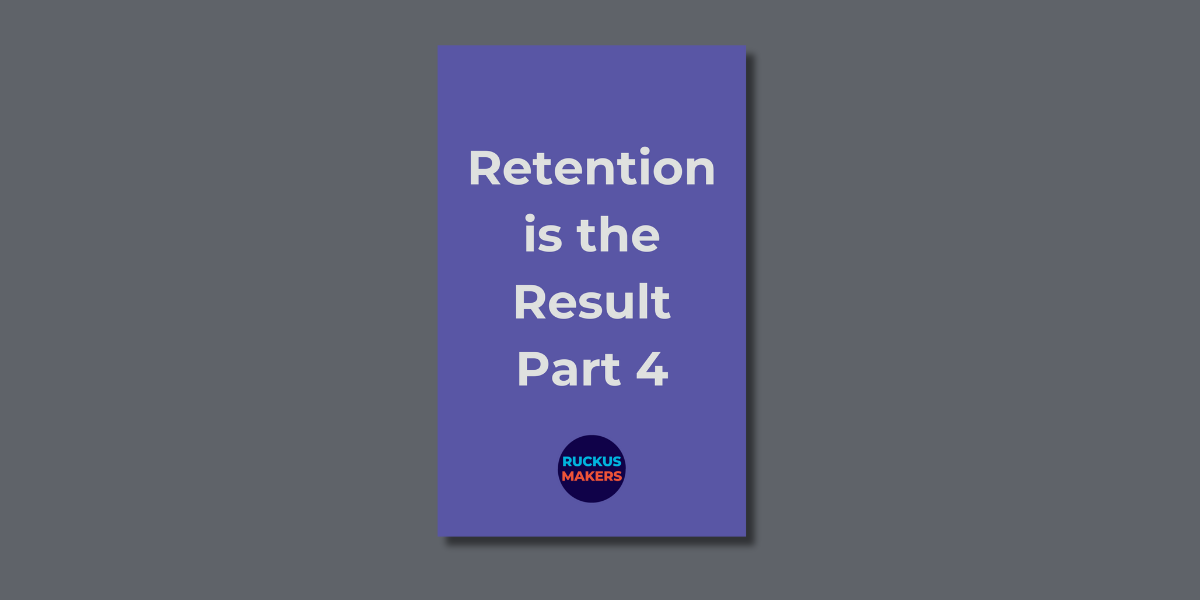👋 Hey Ruckus Maker, Welcome to a 🔒 subscriber-only 🔒 edition of The Ruckus Maker Newsletter. You can learn more about this newsletter here. When you become a paid subscriber you get:
Micro-books focused (like this one today) on how to Do School Different™.
Stories and case studies of the world’s most legendary Ruckus Makers of all time.
Tools and other resources that will help you produce positive results that will make you proud.
An ad-free version of the Better Leaders Better Schools Podcast — ranked in the TOP 0.5% shows in the world + bonus content not available on the regular podcast feed.
Chapter 4. Invest in Growth Through Mentoring
In Chapter 3, you worked with your new teachers (and all of your teachers, if you hadn’t already!) to set meaningful goals for their growth—goals that actually stretch them, goals that they’re actually interested in meeting.
Now, your job is to invest in their professional growth and give them autonomy and support to meet the goals in their plan.
We do this through mentoring.
Most districts include mentoring as part of their induction program. This is standard practice for new teachers, and for good reason.
But if you’re thinking this is something you already have checked off your list, hold tight. Just as with onboarding, your mentoring program is worth taking another look at as an opportunity to provide support not just in your teachers’ first years, but throughout their career at your school. All teachers (and leaders) deserve high-quality mentoring from someone who takes a genuine interest in them and is there to help them grow and succeed.
What we’re talking about here is building a culture of mentoring, where teachers can pursue their goals for professional growth within the context of a caring community of support. As the leader, you can set the foundation for this community of support with the ABCs of Powerful Professional Development.Ⓡ
The ABCs of Powerful Professional DevelopmentⓇ
In my 2022 book Mastermind, I introduced a new framework designed to intentionally integrate Authenticity, Belonging, and Challenge into teachers’ and leaders’ learning experiences. Amazing things happen when staff members feel like they can show up as themselves, are connected to colleagues, and are challenged to grow. Together, these three elements provide a powerful foundation for transforming your school’s culture.
What’s more is that using the ABCs as principles to ground all of your professional development ensures that all staff in the school have a common language and common expectations for the quality and culture of their own learning environment.
Let’s explore each of the ABCs.
Authenticity
It’s important for your school to allow teachers to show up as themselves—to bring all of their unique strengths and passions to the table, and to be recognized for those valuable characteristics. This requires psychological safety, the first requirement for authenticity.
Remember Amy and Rick from the introduction? As nice as Rick was to his teachers, he hadn’t been intentional about creating a place where his teachers felt safe enough to be honest with him about their needs—which is why they came to me instead.
This is a common challenge for leaders, because you have to go above and beyond to invite the type of honesty that will transform your school. In the Ruckus Maker Mastermind™, there are several activities and norms we use to create psychological safety in our groups. I shared over a dozen ideas for cultivating psychological safety in my book Mastermind, but here are just a few of my favorites:




